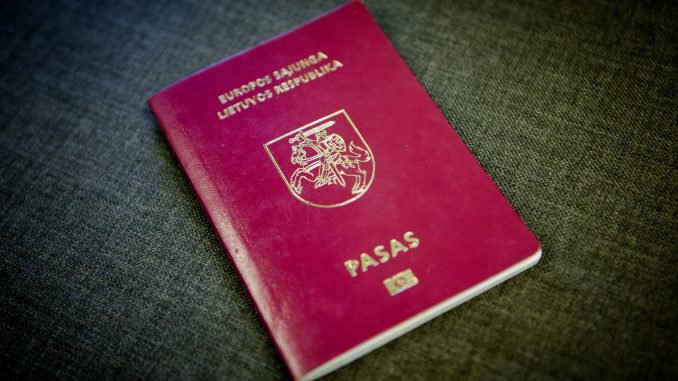
Victories in lengthy judicial proceedings were this week won by two families, Jaquet and Gorecki- Mickiewicz, as the Lithuanian Supreme Administrative Court ordered that names of their children, citizens of Lithuania, should be entered in their passports with their original characters q, w and x that do not exist in the Lithuanian alphabet. According to the ruling, the entries should be made as other entries, while the main page of the passports should feature the Lithuanian version of the names. Furthermore, the court again criticized Lithuania’s legislators for failing to ensure citizens’ rights in this field.
Parliamentary Speaker Viktoras Pranckietis says he had noticed the phenomenon but could not guarantee that the issue would be included into the parliament’s spring agenda.
“We keep hearing court rulings and comments made by experts. The issue of first and last names remains relevant today and we will make substantial efforts to during the spring session to include it into the agenda. We want citizens of Lithuania to feel well, have their rights respected and needs heard,” the parliamentary speaker said in a comment to BNS.
The two families were litigating over the right to have the original names in passports with the Migration Board of the Vilnius county police. The board’s chief Jurgita Trijonienė, nevertheless, said that even the favorable court finding does not make it possible to enforce the decision, as this is not allowed by laws, which requires that names can only be spelled in Lithuanian in passports.
Justice Vice-Minister Paulius Griciūnas says that the initiative to allow spelling of non-Lithuanian names now lied with the parliament.
Evelina Baliko, the head of the public establishment European Foundation of Human Rights who represented the families in court, said her clients were not satisfied with the rulings and the non-existent regulation of name-spelling, therefore, the two cases will be taken to the European Court of Human Rights and the United Nations Human Rights Committee. Institutions of the European Commission have already been notified of the cases.
The legal acts currently in effect in Lithuania only allow Lithuanian characters in the spelling of first and last names of Lithuanian citizens in documents. The issue of name spelling is often raised by Poles living in Lithuania and Warsaw politicians.
Lithuania’s new parliament of the 2016-2020 tenure has not yet addressed the issue.

Be the first to comment